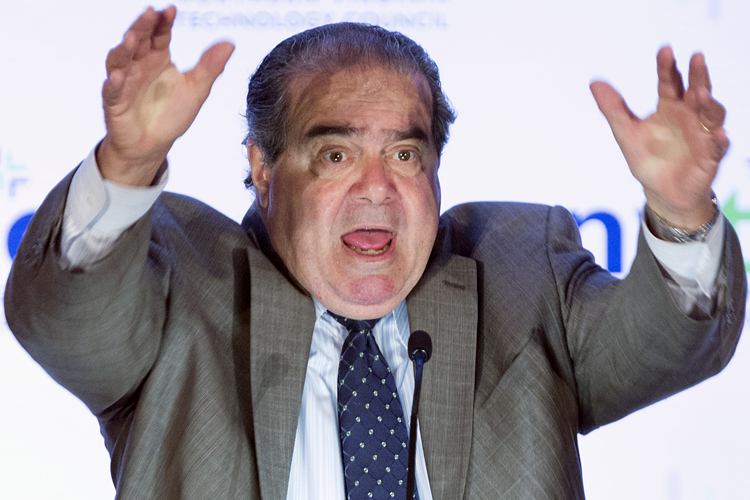The Supreme Court is very close to issuing its ruling in King v. Burwell, the case that could rip a giant hole in the Affordable Care Act, and much of the commentary surrounding the upcoming decision focuses on the risks to political actors. Should the court side with the plaintiffs and rule that the ACA’s subsidies for purchasing health insurance are being illegally disbursed in the 37 states that rely on federally facilitated marketplaces, a very large number of people will no longer be able to afford their health coverage. As National Journal notes, if the court strikes down the subsidies, it will become the biggest political issue of 2015 and both Republicans and Democrats stand to endure some serious political pain.
But it’s important to step back and remind oneself of what is at stake here. The potency of King v. Burwell as a political issue derives from its potential to wreak utter havoc with the lives of millions of people. It’s easy to gloss over that disruption or treat it merely as something that could tilt the next election one way or another. (I know I’m guilty of doing just that in my frequent Hot Takes on the subject.) There is, however, some research that gives a good idea of just how bad things could get for people who rely on Affordable Care Act subsidies to maintain their health coverage.
What would happen if the subsidies were shut off? The Commonwealth Fund looked into the matter in February and the short answer is: nothing good. The first and most immediate impact would be absolute chaos in the insurance market. By 2016 you’d see as many as 9.6 million people drop their insurance coverage because they could no longer afford to pay the premiums. The Urban Institute projected that of the more than 9 million people who would lose their subsidies, nearly 5 million have incomes below 200 percent of the federal poverty level.
And the people who stuck with their coverage would be in for a rude surprise. Earlier this year the Rand Corporation projected a premium spike of close to 50 percent in 2016 as insurers try to cope with the mass exodus of people from the individual insurance market. For a 40-year-old non-smoker with an ACA-compliant “silver” plan, that translates to an extra $1,600 annually in premium payments. Premium spikes like that only serve to push more people out the market, which would only drive premiums higher, which would force still more people out of the market. This the “death spiral” that conservatives predicted Obamacare would bring about.
The consequence of that “death spiral” would be, quite simply, more actual death. The people who’d be hit hardest by the loss of subsidies are people whose incomes are low, but not quite low enough to qualify for Medicaid or expanded Medicaid (assuming expanded Medicaid is even an option, given that many of the states that use the federally facilitated marketplace also rejected Obamacare’s Medicaid expansion funds). As the Commonwealth Fund notes, people without health coverage do not seek out preventative care, and they are less likely to obtain needed medical care. This inevitably leads to poorer health outcomes and, in a lot of cases, more people dying: “By one estimate, the Subsidy Shutdown could result in 9,800 preventable deaths annually.”
Of course, the lack of insurance and the inability to pay for medical care doesn’t obviate the need to sometimes visit the doctor or the hospital. Depriving so many people of health coverage would help undo one of the ACA’s great successes: reducing instances of uncompensated care. Uninsured people still get sick and they still get hurt, and when they can’t pay for their treatment, those costs are absorbed by hospitals and other healthcare providers, which drives the cost of care up and puts greater strain on federal and state health assistance programs and charitable care organizations.
The potential human cost of the King v. Burwell decision is ultimately what matters most. During oral arguments, the conservatives on the Supreme Court expressed confidence that the disruptions that would arise from a ruling for the plaintiffs would provide sufficient incentive for the Republican-controlled Congress to actually work to figure out a solution. Since then, those same Republican in Congress have done everything possible to show how misplaced that confidence was – their best option for “fixing” the problem would actually just make it worse. But hopefully it won’t come to that point, and we won’t have to see how an inept and ineffective Congress would respond to the threat of widespread human suffering.

